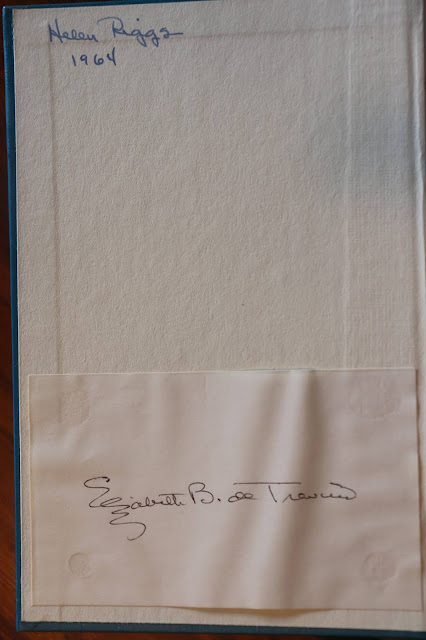Good morning. I've had some thoughts percolating since December and have decided today is the day —
Letter To My Conservative Friends:
Or should I say “To Those of My Friends Who Call Themselves ‘Conservative’”? Because I’m having a hard time understanding what you believe and what you want. Maybe it will help if I tell you what I see as “conservatism,” and you tell me where I’m wrong. This is how I see it -- not a definition, by any means, but some important features:
True conservatism defends freedom. Conservatism worthy of the name would stand firm against tyrants around the world, not roll over for them, wiggling and peeing and showing a soft underbelly. I’m not talking about aggressive empire-building — going out and taking over other people’s lands — but standing against those who would do so to others. Are we on the same page here or not? If not, what am I missing?
I also see true conservatism as fiscally responsible. So conservatism would invest in and maintain a strong military but would not send them on pointless, expensive domestic maneuvers or half-heartedly pursue unwinnable, endless foreign wars, squandering public investment and digging an ever-deeper national deficit to prop up private (perhaps unwise) corporate investments. Or do you see protection of private corporate investment overseas and defense of freedom — our own and others’ — not only compatible but inextricably intertwined? Please explain. What policies would you have our country pursue, and how do you see them fall under the umbrella of conservatism?
True conservatism builds for the future. It respects precedent and draws lessons from the past but never forgets that the object of government policy is long-term stability and security and prosperity in the future. In short, a true conservative is not a gambler, and true conservatism would not take foolish risks with our national future for short-term gain, either financial or political. Perhaps this relates to my paragraph above, and one answer will serve to explain my confusion on both points.
True American conservatism stands by the Constitution and the rule of law. Thus conservatism would respect not only a partisan interpretation of the Second Amendment but the entire Constitution. Furthermore, a conservative president would respect (not demean) the office of president, as well as Congress and the judiciary, and would respect freedom of speech and freedom of the press, however violently he might disagree with opinions sometimes expressed. One-man rule would not be conservative, would it? Would it?
(“The law is no respecter of persons” does not mean disrespect: it means that no one person, even the president, is above the law.)
True conservatism is not anarchy. Does this need to be said? Apparently it does. The current Administration in Washington, D.C., would do away with government protections for ordinary citizens at every level and in every department by appointing to office the least-qualified individuals with the strongest short-term self-interest in destroying rather than fulfilling the trust those offices require for their continued operation. The only way I can understand this as part of a conservative agenda is if conservatism believes the missions of these departments is illegitimate exercise of government’s power. That these departments should never have been established. But then, where does conservative respect for precedent begin and end? Is there some historic line in the sand, before which precedents are respected, after which they are undeserving of respect? Or — as I fear — is the label ‘conservative’ merely shorthand for a party line? If your party does it, it’s good; if the other party does it, it’s bad? Respect and conserve the one, disrespect and destroy the other? Can you understand why it’s hard for me not to see what’s happening as essentially partisan?
True conservatism is honest and proud. It is not built on lies and name-calling, blaming, shouting, bullying, and whining. William F. Buckley represented a conservatism I could understand. He did not rely on urging mobs to shout three-word chants but engaged intellectually with opponents and articulated his own views with careful arguments and defense.
This is why, as I see it, conservatism is moribund in our country today: dying if not dead. Can it be resuscitated? Only, it seems to me, if more than a brave handful of conservatives with spines will once again stand up for its principles. So where do you stand? And where do you think I fail to understand you?
A lot of political mileage has been made of the simplistic and short-sighted idea that government is at the root of every social problem. Is that what you think? Is that how you define conservatism? Think about life in this country without government. Would you really, for the sake of anarchical “freedom,” give up the rule of law and hand over your fortunes and your sacred honor to predatory, unregulated private corporations? Because — follow the money to the power — and you’ll find corporations in the driver’s seat. Where can you see any future security in that scenario? And where, in that picture, is any recognizable conservatism worthy of the name?
Libertarianism is not conservatism. This, at least, is my opinion, based on considerable reading. Libertarians will tell you that private individuals and corporations will do the right thing because only in that way can they protect their investments and future profits. But the investments of any individual — and thus of any corporation — must be made in the short term for profits to benefit that individual (or those stockholders) directly. In the long run, after all, our generation — like all those before it — will be dead! So if governments around the world do not step into the breach to protect air and water and soil quality, woe betide future generations! Or do you see human nature and the natural human life span differently?
I really want to hear from you. Since I’m opening the conversation, though, I’ll lay my cards on the table and reveal my conclusions here at the start:
Conservatism and progressivism need not be enemy camps. One parent in a family may be stricter and the other more obviously nurturing, but that does not mean children would be better off if both parents always took the same approach or if one’s approach did not temper the other, and it certainly doesn’t mean two parents must engage in continual tug-of-war to raise their children! I’ll go further: sometimes it’s important to listen to grandparents, too, and even the children may have perspectives their elders need to take into account.
Democracy rests on a faith that something similar is true of government, that we will be better off making decisions together, with more guiding us than the will of a king, more protecting us than the goodwill of the wealthy and powerful. We need justice, and we need understanding and mercy. We need to stand on our own, and a helping hand is sometimes necessary to get us there.
(If a winner-take-all, Hobbesian “law of the jungle” is your view of freedom, you are an anarchist, not a conservative, as I see it.)
In any political party, when ideological purity is demanded, ideology gets in the way of practical solutions, but “compromise” does not have to be a dirty word. It doesn’t having no principles. After all, the best way to a given goal may well be a path neither side initially envisioned on its own.
True conservatism looks to its legacy, as does true progressivism. I’m certainly not saying that conservatism and progressivism are “the same” — far from it — but neither wants to leave the country in smoking ruins! So if that isn’t a call for mutual respect and bipartisanship, I’m afraid the danger we face is not to conservatism or progressivism alone but to the very soul and future of our nation.
We were once the light of the world. American policies were not always right, and I think we all know that. (Don’t we?) Native Americans were massacred and held in concentration camps. Black Africans were enslaved, bought, sold, and treated as less than human. The United States has intervened in the internal events of other countries, sometimes for the good, other times with terrible consequences. Citizens have been denied the right to vote or to have their votes count, and innocent people have been deprived of life and liberty. Through all these blunders and sins, our country espoused right ideals. Have Americans been nothing but hypocrites? I’m not saying that and don’t want to argue the point.
I would say, rather, that from its inception and over its history our country has made periodic and halting efforts to realize its ideals, at times making partial progress and at other times backsliding seriously — as does any human endeavor, individual or group. Acknowledging our national shortcomings is not being unpatriotic, in my book, and certainly I cannot see holding up lies and calling them truths as conservative. Can you?
The conservative may think I am too critical of our history (do you think so?), while the radical will see my picture as too rosy-hued. The more important question I would put to you is: How does the world see us today? How does it view our national leadership and those who support it? Is a man who shows no respect for the dignity and honor of his own high office conservative? Does “respect” mean nothing more than agreeing with and applauding one man as “the greatest,” even when he forgets he is the highest-ranking servant of the people — all the people — those who voted for him, those who voted against him, and those who didn’t vote at all; those who cheer him and those who criticize him?
My heart has been heavy for over two years now, and that heaviness weighs on me daily. This is very personal. I feel estranged from too many friends on both sides of the political divide.
I don’t understand my polite conservative friends because I don’t understand how they can call themselves conservative and continue to see the current president (or speaker of the House, when you come right down to it) as a conservative leader. But there are also the not-so-polite ones, people I thought for years were my friends but who have now cast me into a camp they identify as “left-leaning liberal fascists.” I don’t even know what that is supposed to mean, but it doesn’t matter, because no conversation is possible against chants of “Lock her up! Lock her up! Build the wall! Build the wall!” Places that once felt welcoming and homelike no longer feel that way to me.
Both sides, I said, though, and I mean it. There are some men and women with whom I agree politically, to a large extent, some of them friends of long standing, whose company I now avoid because they operate these days on a permanent setting of high dudgeon, their rage matching that of the chanters on the other side. They follow bad news (and there’s plenty of it) minute-by-minute and eagerly pass along each latest outrageous tweet. The worst part I see in this, what breaks my heart, is the wall they, my political allies, are in the process of building against anyone on the other side of the divide. Some of these friends are politically active in productive ways, also, and that I applaud, but others seem to be doing nothing but shouting.
Then there are those who studiously avoid any discussion of politics. You might think I would be comfortable with that, but no, that avoidance feels so false to everything I know we are all feeling that I can hardly stand it, even as I politely keep my own observations on life’s surface with strangers until and unless receiving a sign that, whatever our politics, we share present heartbreak. Otherwise, while I go about my public business with my public face, emotionally I tend to draw into my shell, my little world. So yes, I avoid, too, and I feel false when I do it, and how many of us are doing it, and how long can we keep it up? I ask not only my friends who call themselves conservative but all my friends and also anyone I’ve never met who may be reading these words.
This is about so much more than which party won or lost some particular election or office. It goes so much deeper. It is a plague on our historical moment, played out in public but experienced also in private, in sleepless nights and silent, lonely days.
Every new year brings fresh opportunities to reach out, to touch, to love, to give, to be grateful for the life we have. But I am untrue to myself if I pretend I’m not feeling the deep sadness that has been the emotional background for me of the past year and that now accompanies me into the present. So if you are feeling it, too, whatever your political beliefs and allegiances, please know that you are not alone. In the end (and yes, I’m finally coming to it), that may be the most important thing I can say: If you are sad, you are not alone. Many of us are hiding sadness and depression, some with angry shouting, some with light small talk, some by withdrawing into silence and isolation.
In this new year already underway (as it’s taken me weeks to decide to make these thoughts public), I wish us all calmer, brighter times, opportunities to look at one another with love and respect, and as many occasions as possible to open our hearts and minds to one another. Because we can’t leave everything to the younger, rising generation. As long as we’re here, age 20 or age 90, we have work to do. Together.































